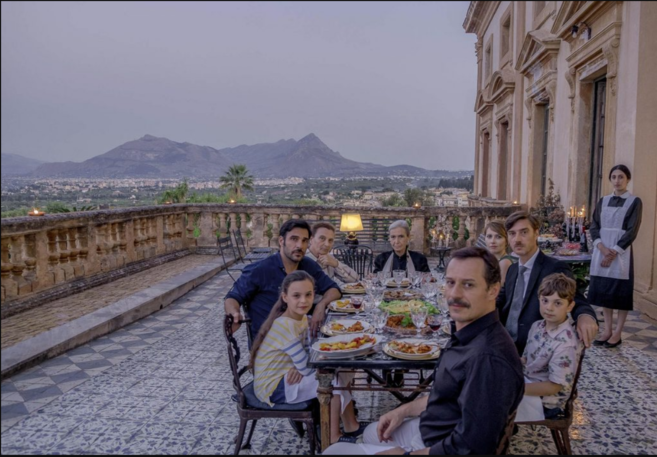


La Dea Fortuna (the goddess fortune) has a secret, a magic trick. How can you keep someone you love always with you? You have to stare at him, steal his image, shut your eyes and keep them closed. And he will make his way into your heart and from that moment, that person will always be with you.
That’s the theme of La Dea Fortunata, the new film from the director of Fate Ignoranti, Ferzan Ozpetek [2], brought to Italian theatres by Warner Bros, two years after Napoli Velata. The Turkish - now naturalized Italian - director goes back to his cinematic roots, focusing on the indissoluble emotional bonds to home, family - even extended - to Rome, and to the importance of building solid connections able to withstand the test of time and of any type of threat. Here, for once, the focus goes beyond the now obsolete issue of sexual orientation and straight to the heart of problems.
Stefano Accorsi plays Arturo, an aspiring intellectual working as a translator and Edoardo Leo is Alessandro, a simple and romantic plumber with a tender heart. They’ve been together for 15 years and their relationship seems to be at the end of the line, their passion has waned, their love has changed and they no longer know how to live with it. As Barbara Alberti, who plays the noble mother Annamaria, wisely states, “It’s no longer about whether we are gay, but whether we are happy.”
Ozpetek explains that he wanted to talk about more than just a couple’s initial encounter. “I’m fascinated by the idea of how, after passion and sex are gone, the relationship can evolve into a different way of being together. I think it’s an issue that resonates with many couples, independently from sexual orientation.”
The occasion comes with two children, entrusted to them by a friend. The two protagonists are then forced to confront profound emotional gaps and the sense of responsibilty as they search for a new definition of love.
Set to the wonderful music of Mina, La Dea Fortunata is a multilayered film, which is clearly aiming for a genre mix between comedy, drama, and horror to try and answer questions that are very personal but also universal. “I took inspiration from a real story, which opened up an entirely new emotional universal that I didn’t know and I didn’t know how I would react to it. What would happen if from one day to the next something unexpected were to happen to us? Are we open to putting ourselves out there? What is our support system? And, more importantly, are we living the life that we always wanted?
La Dea Fortunata not only refers to good fortune, it also evokes the enigmatic statue in the sanctuary of Palestrina near Rome. In the film, it becomes the epitome of free will, centered around the importance of freedom of choice. Because our happiness depends on us alone.
Source URL: http://ftp.iitaly.org/magazine/focus/art-culture/article/la-dea-fortuna-ozpeteks-life-lesson
Links
[1] http://ftp.iitaly.org/files/screenshot2019-12-20at120706pmpng-0
[2] https://en.wikipedia.org/wiki/Ferzan_%C3%96zpetek